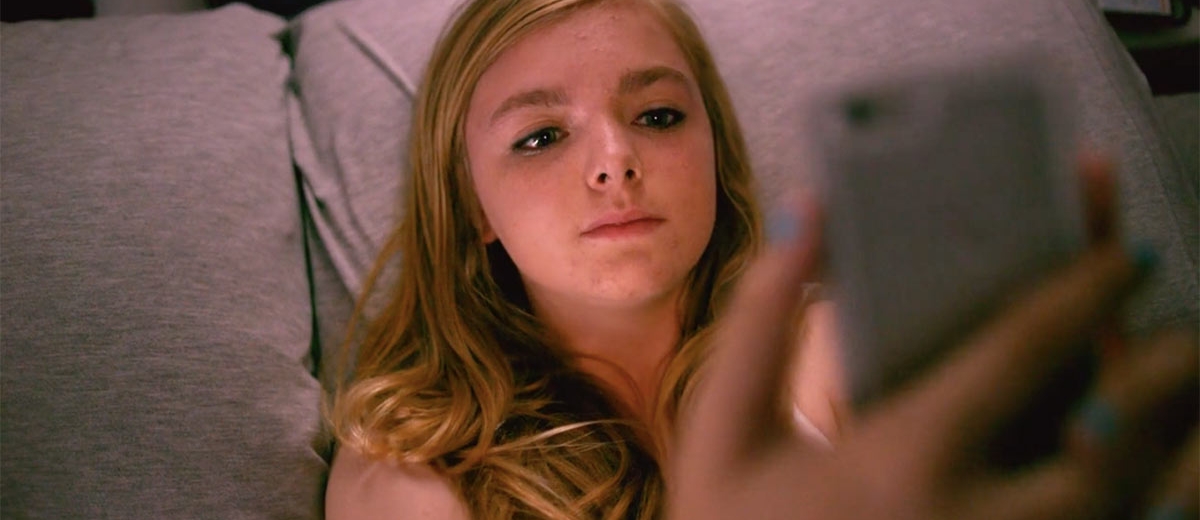Eighth grade is the worst year of basically everyone’s life. Your body is going absolutely haywire with hormones and growth spurts to the point where even basic motor functions hurt or are discombobulated. Empathy hasn’t full been developed in the human mind, so everyone is awful to each other all the time. Boys start becoming aggressive towards girls sexually in ways that are inappropriate not just for their age, but in ways that are disgusting and predatory by adult standards. Everyone is self centered, rude, and just downright smell bad.
Which is why Bo Burnham’s Eighth Grade is so clever—it’s ostensibly about the challenges and horridness of the worst year of adolescence, but at the same time subtextually explores how the world is changing to make our entire lives like an extended year of grade eight.1 Social media in the western world has allowed us to portray our lives in a vapid and fake way. Political discourse has become more about the clique you belong to and being awful to those who are in another. Empathy is seemingly dead, as people cheer at harm being done to people they either don’t like, don’t know, or just don’t care about.
Eighth Grade stars Elsie Fisher as Kayla, a girl in her final week of middle school before moving to the great zenith of high school. She’s not popular, struggles with self image, and suffers from a distinct lack of self esteem. She stars in her own vlog on YouTube that is about self help and self actualization, despite the fact that everything she says in her videos about herself is a blatant lie for anyone who knows her. She’s reached an age where her single father, who desperately wants to connect with her and clearly loves her with his whole heart, is the lamest human being imaginable. She wants nothing more than to be accepted by her peers and to fit in with the cool kids, something she rarely, if ever, accomplishes.
What separates Eighth Grade from other “coming of age” films about adolescence is that it’s unflinching in its portrayal of how awful life truly is at that age. This isn’t a nostalgic look back at a more innocent time. There are scenes in Eighth Grade that are devastatingly sad and scenes that mine cringe comedy out of interactions that are crushingly authentic. There’s even moments that are as tense and bone-chilling as any horror film could possibly hope to be. Burnham manages to blend this all together into an affecting drama without being tonally jarring, an immense accomplishment for a first time director who made his name as a stand-up comic.
This isn’t to say that Burnham completely abandons his comedic sensibilities. Eighth Grade is just more interested in crafting its comedy situationally, rather than with quips and one-liners as one would expect from a film written and directed by a stand-up comedian. The constant “ums” and “likes” from the children, the way Burnham emphasizes the pubescent hormonal lust of the preteens, the painfully wince-inducing attempts by Kayla and others to be “cool,” and the increasingly awkward interactions between father and daughter are where Burnham mines most of his comedy.
The film works primarily because Fisher, at just 15 years old, is so strong in the lead role. She manages to be both charismatic enough to essentially be onscreen for all ninety minutes of the film’s runtime, but at the same time her social tactlessness and awkward nature feels absolutely real and convincing. You never doubt that she is just pretending to be someone suffering from chronic societal alienation. Much like how Saorsie Ronan perfectly captured teenage pretention and familial conflict in Lady Bird, so too does Fisher exhibit textbook preteen angst and discomfort.
There’s something special about a film that manages to showcase, warts and all, an authentic view of “coming of age.” Rarely do we get a film that actually manages to display these periods of our lives without everything being drenched in nostalgia. Eighth Grade makes a smart choice to set the film in the present day, rather than in a timeframe from when Burnham was that age. It allows the film to escape the nostalgic trappings and autobiographical elements that so many “coming of age” films find themselves stuck in. Instead, Burnham meticulously and impeccably captures the feeling of eighth grade, even if he might not have been as inherently immersed in the culture of modern preteens.
It makes for a film that reads not as an artist reliving their own childhood, nor as someone hollowly trying to make a film about “kids these days.” Rather, it makes for a film that gets to the heart of the struggles with adolescence, particularly in a world that encourages not just twelve year olds, but everyone, to indulge in their worst base tribalistic instincts and phoniness. Burnham doesn’t use Eighth Grade to condemn the children, nor does he use it to attack how social media has taken over their lives. Rather, it’s about how maybe, just maybe, we should all be nicer to each other, be less outwardly fake, and leave our eighth grade attitudes behind us. If twelve year old Kayla can, maybe we can too?






